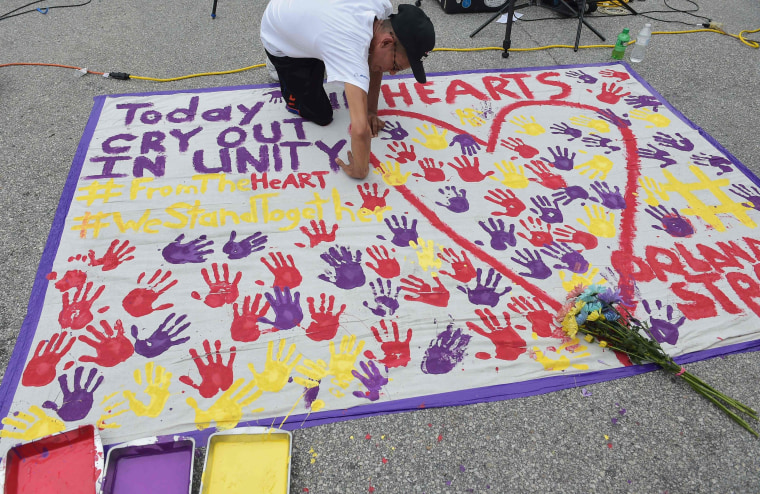There's often an argument that the fight for LGBTQ rights should not be compared to the civil rights era. In some ways, I agree, however following the attack this morning on an Orlando area gay club that has left at least fifty people dead, can we acknowledge that fighting for respect and the right to live in peace is a universal concept?
While the civil rights era and everything that led up to it has been the definition of how America treats it's "others," no one has the market cornered on oppression and discrimination.
Moreover, if as Black people, we value the fight for our freedom, we can't participate in the American tradition of focused, systemic discrimination. To simultaneously engage in discrimination while fighting against it for ourselves is the height of contradiction.
You either fight the bully or you are the bully. There is no middle. More so, holding up our oppression as a means to validate our victimhood over others is akin to a pair of women arguing over whose partner beats them more. There is no winner, only bruises.
While those in the LGBTQ community can fight for awareness, the responsibility to enact actual change comes from those who reside safely in the binary.
My heart goes out to the victims of last night's terror attack, and to be clear; this was a terrorist attack. There is no difference between last night and the Birmingham church bombing in 1963 or the church shooting in Charleston a year ago this week.
It was 53 years ago today that Medgar Evers returned from an integration meeting and was assassinated in his driveway carrying NAACP T-shirts with "Jim Crow Must Go" printed upon them. Evers was murdered just hours after President Kennedy's nationally televised speech in support of civil rights.
As such, I mourn for those who lost their lives as well as those injured last night in the same fashion that I mourn anyone who has been attacked for living in their truth.
This attack has left a bloody mark on this year's Pride month. It will likely prove to be a stain as indelible as the Stonewall riots over fifty years ago. It is a moment that should bring a national shame that makes America reflect on the disparity between the ideal it supposedly upholds (liberty) versus the ideal it lives by (oppression). Whether or not that will happen in any significant manner leaves plenty of room for skepticism.
I am acutely aware that I am writing this as a straight, cisgender man in a world that holds that bit of intersectionality as "normal." With this in mind, I am acutely aware of the nuance and understanding that may elude me. I am also mindful of the fact that the conversations about oppression need to happen with those who stand outside of it.
RELATED: Orlando LGBT Paper Editor: 'I Don't Even Know If My Friends Are Alive'
People of color cannot eliminate racism. We can only work to get those in power to acknowledge it. In the same fashion, while those in the LGBTQ community can fight for awareness, the responsibility to enact actual change comes from those who reside safely in the binary.
You either believe in the struggle for freedom for all or you are content with standing in line like Oliver Twist, waiting for your dollop of privilege and asking America for more.
Progress for one, is progress for all.
